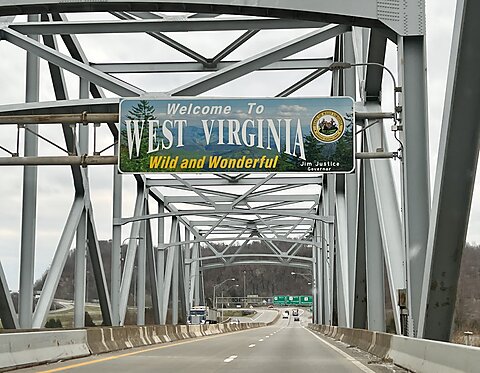Krit Chanwong and Marc Joffe
The federal government has accrued massive deficits in the last two decades. Yet it often gives fiscal advice to states, most of whom have been much more fiscally responsible. Unsurprisingly, most of this advice is bad. Take the federal government’s advice on West Virginia’s land‐grant HBCUs for example.
On September 18, 2023, the USDA and US Department of Education sent a letter to 16 states alleging major funding disparities between the states’ land‐grant historically black colleges and universities (HBCUs) and non‐HBCU land‐grant universities.
One of the letters was addressed to West Virginia Governor Jim Justice. The letter alleged that, over the last thirty years, West Virginia State University (WVSU), a land‐grant HBCU, has been underfunded by $850 million when compared to West Virginia University (WVU), a non‐HBCU land grant university. The letter advises West Virginia to make a “substantial state allocation toward the [HBCU] deficit” combined with a “forward‐looking budget commitment for a two‐to‐one match of federal land‐grant funding for these institutions in order to bring parity to funding levels.”
It is true that HBCU land‐grant universities have been historically underfunded. Evidence of this is not hard to find. And it is tempting to advocate for increased investments to service this historically disadvantaged population. However, such arguments do not seem to apply to WVSU. Ever since desegregation, WVSU has ceased to be a majority‐black institution. Moreover, in 1957, WVSU became the only land‐grant HBCU to lose its land‐grant status. This status was only returned in 2001. So it is unlikely that any increases in WVSU funding will advance educational equity in West Virginia.
Moreover, the USDA and the US Department of Education’s boilerplate proposal ignores some sobering realities about West Virginia’s demography. From 2010 to 2021, West Virginia’s population shrunk by 3.8 percent. Moreover, from 2010 to 2020, the percentage of residents in West Virginia aged below 18 decreased from 22.3 percent to 21.2 percent. Put simply, there are fewer people in West Virginia, and even fewer young people. These trends are unlikely to change due to the decline of West Virginia’s coal mining industry.
Both WVU and WVSU have felt the effects of West Virginia’s demographic decline. From 2020 to 2021, WVU’s total enrollment shrunk by 3 percent, from 26,269 to 25,474. During the same time, WVSU’s total enrollment shrunk by 6 percent, from 3,638 to 3,415. These declines in total enrollment were larger than national declines in college enrollments. As a result, WVU has been looking to make some significant cuts to its academic program. Increasing WVSU’s funding, then, may simply be a short‐term (and fiscally irresponsible) bandage to a structural problem that requires more substantial reforms.
In fact, there is a high chance that increased educational funding for WVSU may increase the amount of administrative bloat. According to a 2017 study, administrative hiring in higher education has increased 50 percent faster than instructional hiring from 2001 to 2011. Any increases in WVSU funding would be likely to fund WVSU’s administrators, who may not be delivering much value to WVSU’s students.
If legislators want to truly improve WVSU, they should consider integrating WVSU into the WVU system, which currently consists of five colleges (including WVU). Through integration with the WVU system, universities will only need to depend on a single vice chancellor, provost, or chief financial officer, amongst other administrative positions. A proposed 2017 integration of 12 Connecticut community colleges, for example, was estimated to save $28 million due to reductions in administrative staff. This proposal will keep WVSU economically viable, while modestly reducing West Virginia’s higher education budget.
Consolidating public higher education institutions (as well as K‑12 schools) in the face of stagnant to declining enrollment and trimming administrative staff are among the recommendations in Cato Institute’s new policy analysis, State Fiscal Health and Cost‐Saving Strategies. The new study finds that increased state spending often fails to correlate with better policy outcomes and provides policymakers with a framework for controlling costs.
But as the study notes, states have a much more manageable debt load than the federal government. Consequently, the federal government is the last place states should turn for fiscal guidance.

